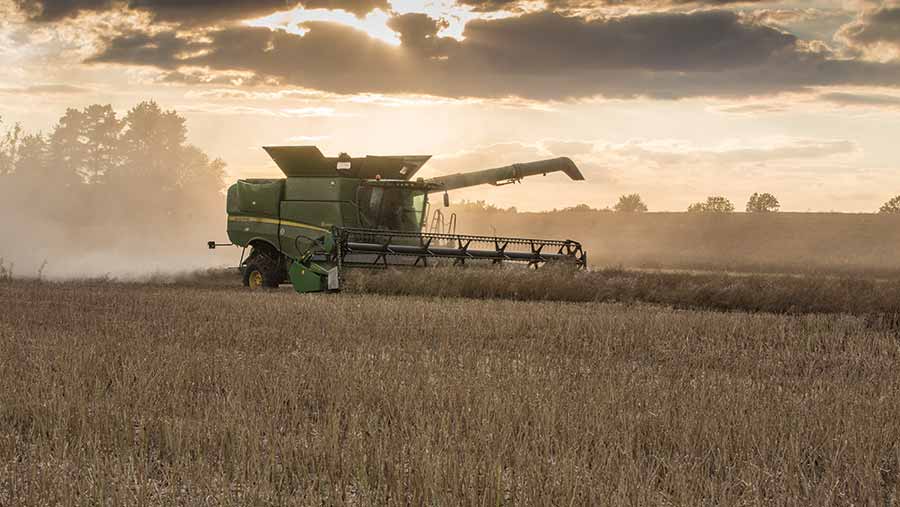Oilseed rape price jumps £14/t in a week
 © Tim Scrivener
© Tim Scrivener Oilseed rape prices have risen by £14/t in just one week, with poor yields and another fall in the value of sterling taking average farmgate prices into the mid £290s/tonne.
The week to Wednesday (10 August) saw spot values at £288/t to £300/t ex-farm around the regions, with November worth £307-£312/tonne.
From reports so far on an estimated 70% of the UK winter crop cut, United Oilseeds trading manager Owen Cligg put average yield at about 3.05t/ha.
See also: Brexit advice for farmers with permanent foreign workers
Oil content was disappointing: at 42-43% for most samples it was is slightly lower than average. Some samples had admixture at levels where the penalties for this could wipe out the benefit from oil bonuses, said Mr Cligg.
The sharp drop in sterling and a 10-euro rise on the French Matif market since 1 August were the main reasons behind the big farmgate price jump, said Jonathan Lane, trading director at Gleadell Agriculture. Limited farmer selling and trade shorts were also factors, he added.
Challenges for the development of prices further forward include currency and demand for rapemeal, alongside the size of other oilseeds crops.
Larger global sunflower and soyabean harvests are expected – up by 8% and 4% respectively – and rapemeal is struggling to compete on price with these crops in feed rations.
In addition, oilmeals in general may face greater competition from lower-priced feed grains, said AHDB analyst Isobel Robinson in a report. The progress of the US soyabean crop, the size of Russian and Ukrainian sunflower crops and vegetable oil markets were areas to watch, she said.
Dried distillers’ grains are also increasingly widely available as an alternative protein source in animal feed rations.
Latest harvest reports suggest that UK rapeseed yields are about 9% down on last year. In most seasons the UK produces a surplus of rapeseed, much of which is exported to other EU countries.
This season, shorter supply means that UK prices are closer than usual to those on Continental Europe – and with an expected UK crop of about 1.8m tonnes this year (2.54m tonnes in 2015), there will be little or no exportable surplus.
About 100,000 tonnes is understood to have been committed for export, which will mean that Continental rapeseed may be imported later in the season to fill a UK demand gap.
Several recent forecasts put the EU rapeseed harvest at between 20.5m and 21.5m tonnes, compared with last year’s 22.1m tonnes.
